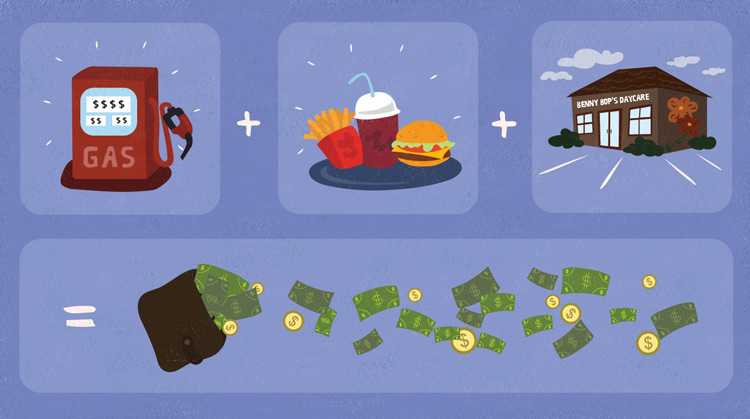Part-Time Jobs -
Working Multiple Jobs

Part-Time Jobs
Working Multiple Jobs



Maybe you need to pick up another part-time gig to make ends meet–or you’re someone who just likes to stay busy! Regardless of why you’re thinking of working multiple jobs, it’s a decision you shouldn’t take lightly.
A lot depends on where you’re at in your life’s journey, as well as your financial responsibilities. Before you start looking for a part-time job, you might want to take some time to really think about it and even weigh the pros and cons.
Common reasons for working more than one job include bringing in additional income, developing new work skills, and exploring potential career paths. But there are plenty of downsides, too–namely, juggling schedules and the likelihood of added stress.
Can you be successful at working multiple jobs? Well, many people manage to do it! Since it can be tough, let’s talk about some key factors to consider...
Scheduling and expenses
You'll need to be able to successfully juggle your work schedule. Since this can be tricky, it can be helpful to set aside some time for planning at the beginning of each month.
Even if you’re good at memorizing information, writing it down (or recording it) will help you to keep track of other responsibilities or appointments. You can use a paper planner, a calendar, or a tool like Google Calendar.
If you work two or more shifts in one day, factor in enough time to commute from one job to the other. Communicate with your employers about your availability far in advance to avoid scheduling conflicts. (If you’re still debating about telling your employers, be sure to check out the next lesson).

Even though getting a second or third job may help you to earn more money, you'll want to be aware of the extra costs they can create. Here are three added expenses to keep in mind:
These added expenses can be managed. Just remember that it’s crucial to plan ahead! Also, feel free to check out our “Money Basics” lesson on creating a budget.
Work-life balance

A work-life balance refers to how much time you spend working, and how much time you spend doing things outside of work. As we mentioned earlier, think about “where you’re at” in your life. If you have the time and energy to put in longer hours, this might be worth it in the long run.
Keep in mind that the more time you spend working, the less time you have to devote to areas of your personal life.
When it comes to taking on another job, it's a good idea to discuss it with your family or significant other. Chances are that they will be affected by your new schedule, too!
Stress
We all deal with stress in our own way. Regardless of how well you handle stress, if you become burned out from working long hours, this can have a negative effect on you and your work performance. Stress can also take a toll on your physical and mental health.
Some jobs are easier than others. If you’re thinking about taking on another part-time job, it’s helpful if at least one of them isn’t too stressful. Think about what type of work environment you thrive in. Maybe you’re a night owl, or you don’t mind being alone. Maybe a fast-paced social job makes your shift fly by!
Reflect on your past job experience and what’s worked for you. If you don’t have a lot of experience, or you’re unsure if a position is a good fit, follow your instincts. If the job sounds like too much work, or something you wouldn’t enjoy, you might want to continue your search for the right opportunity.
The hidden costs
Working another job may sound like a simple solution to some of your problems, but there are also some hidden costs you may not be aware of...
Watch the video below to learn about the costs associated with having multiple jobs.
If working two or more jobs just doesn't seem practical for you, consider the alternatives. Maybe you can ask for more hours at your current job, or seek a new full-time position instead of multiple part-time jobs. Whether you decide to move forward with working additional jobs depends on your situation.
In the next lesson, we’ll discuss how to decide whether or not to tell your employer about your other job(s).
/en/part-time-jobs/telling-your-employer-about-your-other-jobs/content/